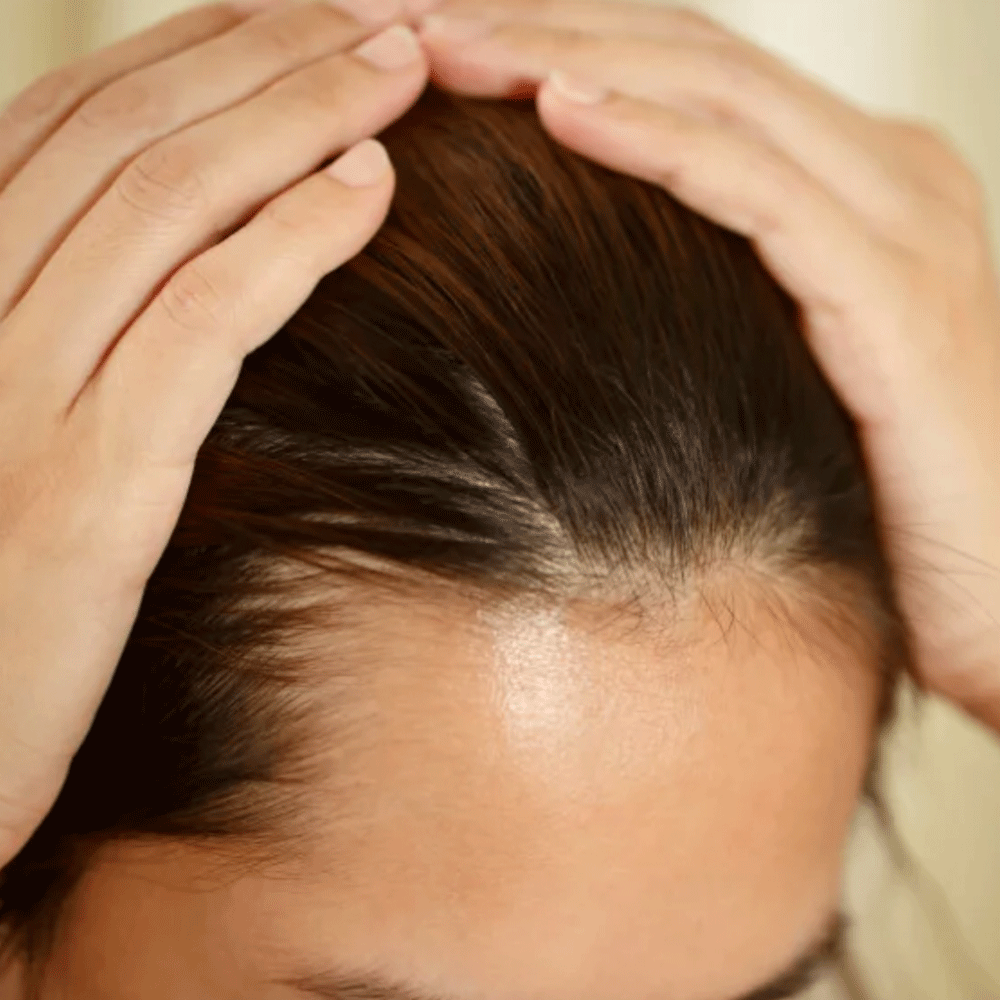Sebum is a natural oil produced by the sebaceous glands in the scalp. It plays a crucial role in maintaining scalp health and promoting healthy hair growth. In this article, we will explore the functions of sebum and how it affects the scalp.
The Function of Sebum
Sebum is a mixture of lipids, wax esters, and triglycerides (fat cells). Its primary function is to moisturise the scalp and hair, protecting it from external damage such as dryness, heat, and environmental factors. Sebum also acts as a natural conditioner, making the hair soft and shiny. It also assists the hairs when emerging from the scalp – if they have a good start and pop out nice and easy, they’ll grow strong. If they’re met with a dry environment, they’ll struggle to grow and will be immediately weaker.
Another important function of sebum is to protect the scalp and hair from microbial infections. Sebum contains antimicrobial properties that prevent the growth of bacteria and fungi on the scalp. This is crucial for maintaining a healthy scalp and preventing conditions such as dandruff and seborrheic dermatitis.
The Effects of Excess Sebum
While sebum is essential for maintaining scalp health, excess sebum production can lead to scalp and hair problems. Excess sebum can cause the hair to become oily, flat, and weighed down, making it difficult to style. It can also clog hair follicles, leading to hair loss and other scalp conditions.
One of the most common scalp conditions caused by excess sebum is seborrheic dermatitis. This condition causes oily, itchy, and flaky skin on the scalp, face, and other areas of the body. Seborrheic dermatitis is often treated with medicated shampoos and topical creams that contain antifungal agents.
The scalp is encased in its own secretion after approx. 50 hours (2 days), let alone the debris which has fallen on it – pollution, dust, perfumes, poo particles! It needs to be cleansed regularly – sebum is fab, but it will contain bacteria because of outside aggressors in a very short space of time. Your body should be able to replace that sebum regularly as to not dry out the scalp. A high functioning scalp, a healthy scalp should need to be washed every 2-3 days.
Maintaining Sebum Balance
Maintaining sebum balance is essential for scalp health. To keep sebum production under control, it’s essential to maintain good hygiene and wash the scalp regularly. Using a gentle shampoo and avoiding excessive heat styling can also prevent damage to the scalp and hair.
It’s also essential to maintain a healthy diet and lifestyle to promote healthy sebum production. Eating a diet rich in vitamins and minerals such as vitamin D, zinc, and iron can promote healthy sebum production and prevent scalp and hair problems. Drink your water and lean on hydrating products to helps your scalp, if it naturally drier!
Conclusion
Sebum plays a crucial role in maintaining scalp health and promoting healthy hair growth. Its moisturising and antimicrobial properties protect the scalp and hair from external damage and microbial infections. However, excess sebum production can lead to scalp and hair problems, including seborrheic dermatitis and hair loss. Maintaining sebum balance requires good hygiene, avoiding harsh hair products, and maintaining a healthy diet and lifestyle.
